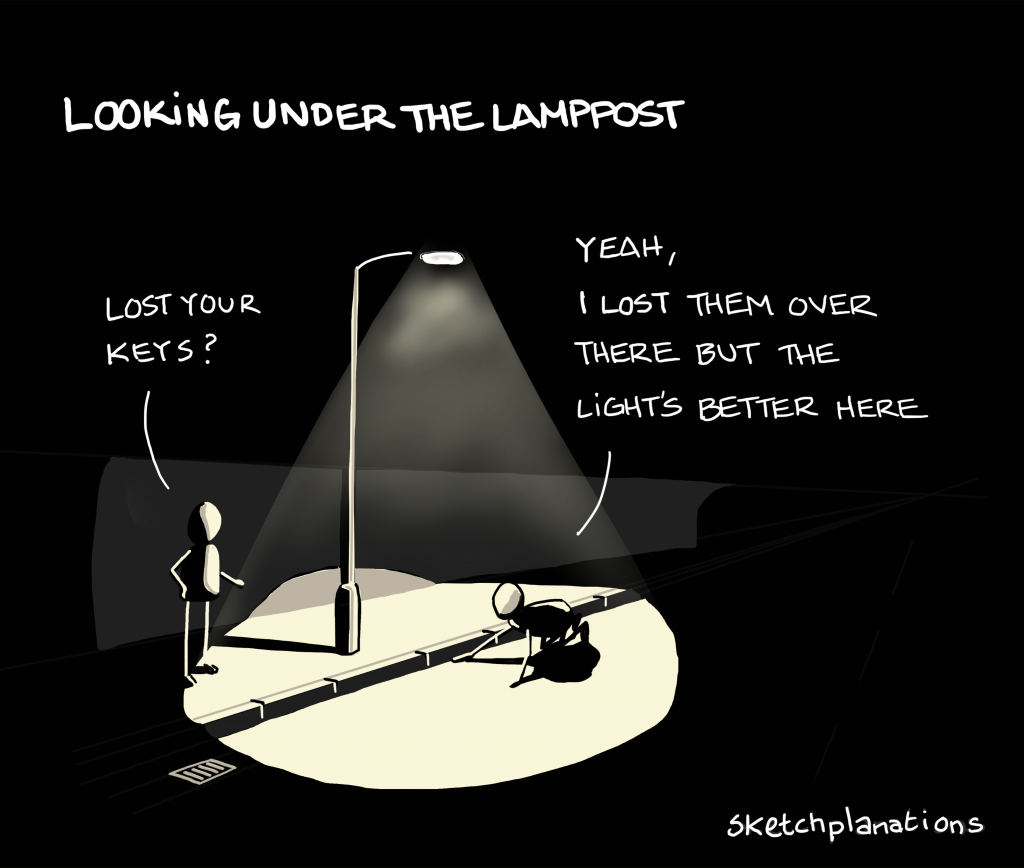
Everyone knows that the social circumstances that folks stay in have a significant impact on their psychological well being. That is well-documented within the tutorial literature (e.g. Lund et al, 2018; Kirkbride et al, 2024). It’s no thriller that residing in poverty, coping with day by day threats to your private security, or being recurrently uncovered to racism and discrimination makes individuals mentally unwell. The large query is what to do about it. An Australian linguist lately analysed information articles on psychological well being and located that whereas most articles referenced the social points that contribute to psychological well being issues, in the case of discussing potential options they inevitably change again to particular person therapy or self-help, slightly than addressing the circumstances which might be making individuals unwell (Horwood, Augoustinos & Due, 2023).
The authors of this current umbrella assessment remind us that social options are wanted for social issues. They take a scientific method to determine which actions to handle the main social determinants of psychological well being are supported by the present proof, which is a helpful contribution to coverage debates about how you can enhance inhabitants psychological well being. Additionally they helpfully hyperlink these actions to the broader world well being and growth agenda within the type of the Sustainable Growth Objectives. Finally, nonetheless, I feel that their assessment of opinions largely highlights the bounds of the best way that we have a tendency to consider “interventions” in psychological well being analysis and the necessity for a broader paradigm, as I’ll argue beneath.

We all know that the social circumstances that folks stay in affect their psychological well being. The large query is what to do about it.
Strategies
The authors performed an umbrella assessment – successfully a assessment of current systematic opinions – following established strategies. There are after all some shortcomings of this method (i.e. if no person has but achieved a scientific assessment of a specific subject then this space of interventions gained’t have been included). Nevertheless, for a query this broad, masking all social determinants of psychological well being, such an method is critical to make the duty manageable.
Crucially, they deal with opinions of intervention research with a management group with a purpose to consider the psychological well being impression of the interventions thought of. Though as this was an umbrella assessment they needed to resolve whether or not to incorporate opinions that included managed and uncontrolled research, so in observe they included opinions the place greater than half of the included research had a management group; it wasn’t clear to me whether or not they extracted outcomes from solely these research with a management group or not.
There are after all good causes for this resolution. With no management group it’s troublesome to conclude whether or not any change in individuals’s psychological well being is attributable to the intervention or if it could have occurred anyway. Nor can we inform if there was one thing else occurring alongside the intervention that led to the development or worsening of members’ psychological well being. The limitation of this method, nonetheless, is that lots of the most doubtlessly impactful methods to handle the social determinants of psychological well being aren’t simply amenable to managed trials. Nationwide insurance policies to handle youngster poverty, comparable to reforming the advantages system, for instance, would possibly moderately be anticipated to have a significant impression on the psychological well being of each youngsters and oldsters, however there could be no apparent management group. Social determinants of psychological well being usually replicate fundamental human wants, such because the human rights for meals and shelter, and there are apparent moral dilemmas in withholding such help from individuals with a purpose to consider the psychological well being impression of getting these fundamental wants met or not.
Thus, the impact of attempting to take an evidence-based method – the place the gold normal of proof is the randomised managed trial – is to focus consideration on methods that match simply into the class of “interventions”; in different phrases, discrete, time-bound, clearly outlined companies that may be evaluated in the identical approach that we consider medical interventions. These have a tendency to focus on downstream threat elements which might be near the person, slightly than the larger structural causes that result in these threat elements being inconsistently distributed throughout the inhabitants, resulting in persistent well being inequalities.
Outcomes
A complete of 101 opinions have been included on this umbrella assessment. Simply 23 of those have been rated as having excessive confidence, 14 as reasonable, 24 as low and 40 as critically low in accordance with the AMSTAR-2 (Shea et al., 2017). The authors centered solely on the findings from the 37 opinions rated a reasonable and excessive confidence.
The included opinions present that some (however not all) interventions concentrating on intimate associate violence, poverty, employment and dealing circumstances, social inclusion, and bullying, seem to have some psychological well being advantages. Additionally they point out a constructive impression of some (however not all) psychosocial interventions for individuals who have lived by way of humanitarian or environmental disasters. There have been some necessary social determinants – comparable to youngster abuse – for which the authors discovered no proof of a psychological well being impression of interventions that concentrate on this issue.

Over half of the included opinions on this umbrella assessment have been rated as low or critically low high quality.
Conclusions
These findings present a helpful place to begin for policymakers trying to enhance inhabitants psychological well being to determine interventions for which there’s a longtime proof base. The outcomes don’t say whether or not the interventions had an impact on the social determinant in query, nonetheless, so it’s unclear whether or not these research that failed to provide a psychological well being impression did so as a result of they have been ineffective in altering the social circumstances that trigger psychological unwell well being, or as a result of there isn’t a quick psychological well being impression of adjusting these specific circumstances.
This sort of assessment is unable to unpick questions on the place interventions occurred, how they have been applied, and for whom they labored, if their results have been variable for various teams. To actually perceive why some interventions “labored” or “didn’t work”, extra theory-driven realist evaluations are wanted to unpick the processes by way of which every intervention operates inside its specific context. We have to transfer past asking “what works?” to “what works for whom, beneath what circumstances, and why?”.

We have to transfer past asking ‘what works’ to ‘what works for whom, beneath what circumstances, and why?’
Strengths and limitations
The authors acknowledge the restrictions of conventional strategies for evaluating interventions within the context of complicated methods, however don’t completely spell out the implications for this assessment. For instance, “past addressing particular person and interpersonal dimensions of kid abuse, prevention applications may benefit by addressing systemic contributors, comparable to cultural or organizational norms, socioeconomic, and structural inequalities”. They state that “a variety of examine designs are required to develop proof for social determinants interventions” and suggest using novel quantitative and practice-based strategies (together with pure experiments) and the triangulation of quantitative proof with qualitative analysis and implementation science approaches to handle questions of mechanisms, context, and tradition.
Plenty of actions to handle social determinants might subsequently be promising for psychological well being, which weren’t thought of by the present assessment. Many of those are overtly political, for instance, regulating industries that exploit individuals and deplete or pollute our shared sources, clamping down on the fossil gasoline firms and industrial animal agriculture that’s driving environmental disasters, brokering peace offers, implementing rules to forestall industrial disasters, higher policing round youngster abuse and prosecuting sexual offenders and many others. The undertaking of making higher psychological well being overlaps considerably with the undertaking of constructing a fairer society, and our regular analysis strategies are unequipped to seize the complexity of those societal-level points.
Are we barking up the flawed tree by focussing on “interventions”? Insurance policies and community-led initiatives usually goal a number of co-occurring determinants, in iterative, evolving methods. This method simply doesn’t match with the best way we take into consideration “interventions” in analysis, the place a really outlined service – which is essentially slim and focused – is applied and evaluated with a management group. Certainly the authors acknowledge “the strain between standardizing intervention designs and the significance of appropriately tailoring interventions to specific teams and contexts…. Co-produced, interdisciplinary approaches are required to make sure biggest impression”.

The undertaking of making higher psychological well being overlaps considerably with the undertaking of constructing a fairer society, and our regular analysis strategies are unequipped to seize the complexity of those societal-level points.
Implications for observe
This assessment summarises the present state of proof on “interventions” concentrating on social determinants of psychological well being, however a few of the suggestions from the dialogue are price highlighting. The authors write: “There’s a want to maneuver away from reactive Western psychosocial approaches, to approaches which intention to forestall environmental occasions (e.g. local weather motion) or which handle different social determinants (e.g. meals safety) within the context of disasters”. This, I feel, is essential. Even a few of the interventions included within the present assessment appear to focus on psychological well being within the context of social determinants, falling into the identical entice that so many others have fallen into of showing to speak about altering social circumstances, however truly reverting to focussing on particular person responses to these circumstances.
We have to study from the analysis on complicated methods and adapt our approaches to analysis to be match for goal when wanting on the dynamics of upstream interventions inside a system that has many inter-dependent parts. And we have to replace our understanding of proof with a purpose to synthesise this type of info to make coverage and advocacy choices.

This assessment requires a shift from treating psychological well being issues to tackling their root causes, like local weather change and meals insecurity.
Assertion of pursuits
No pursuits to declare.
Hyperlinks
Major paper
Oswald, T. Okay., Nguyen, M. T., Mirza, L., Lund, C., Jones, H. G., Crowley, G., … & Das-Munshi, J. (2024). Interventions concentrating on social determinants of psychological issues and the sustainable growth targets: a scientific assessment of opinions. Psychological Medication, 1-25.
Different references
Horwood, G., Augoustinos, M., & Due, C. (2023). ‘Psychological Wealth’and ‘Psychological Health’: The discursive building of psychological well being within the Australian information media in the course of the COVID‐19 pandemic. Journal of Neighborhood & Utilized Social Psychology, 33(3), 677-689.
Kirkbride, J. B., Anglin, D. M., Colman, I., Dykxhoorn, J., Jones, P. B., Patalay, P., … & Griffiths, S. L. (2024). The social determinants of psychological well being and dysfunction: proof, prevention and suggestions. World psychiatry, 23(1), 58.
Lund, C., Brooke-Sumner, C., Baingana, F., Baron, E. C., Breuer, E., Chandra, P., … & Saxena, S. (2018). Social determinants of psychological issues and the Sustainable Growth Objectives: a scientific assessment of opinions. The lancet psychiatry, 5(4), 357-369.
Shea, B. J., Reeves, B. C., Wells, G., Thuku, M., Hamel, C., Moran, J., … & Henry, D. A. (2017). AMSTAR 2: a important appraisal device for systematic opinions that embody randomised or non-randomised research of healthcare interventions, or each. bmj, 358.








Discussion about this post